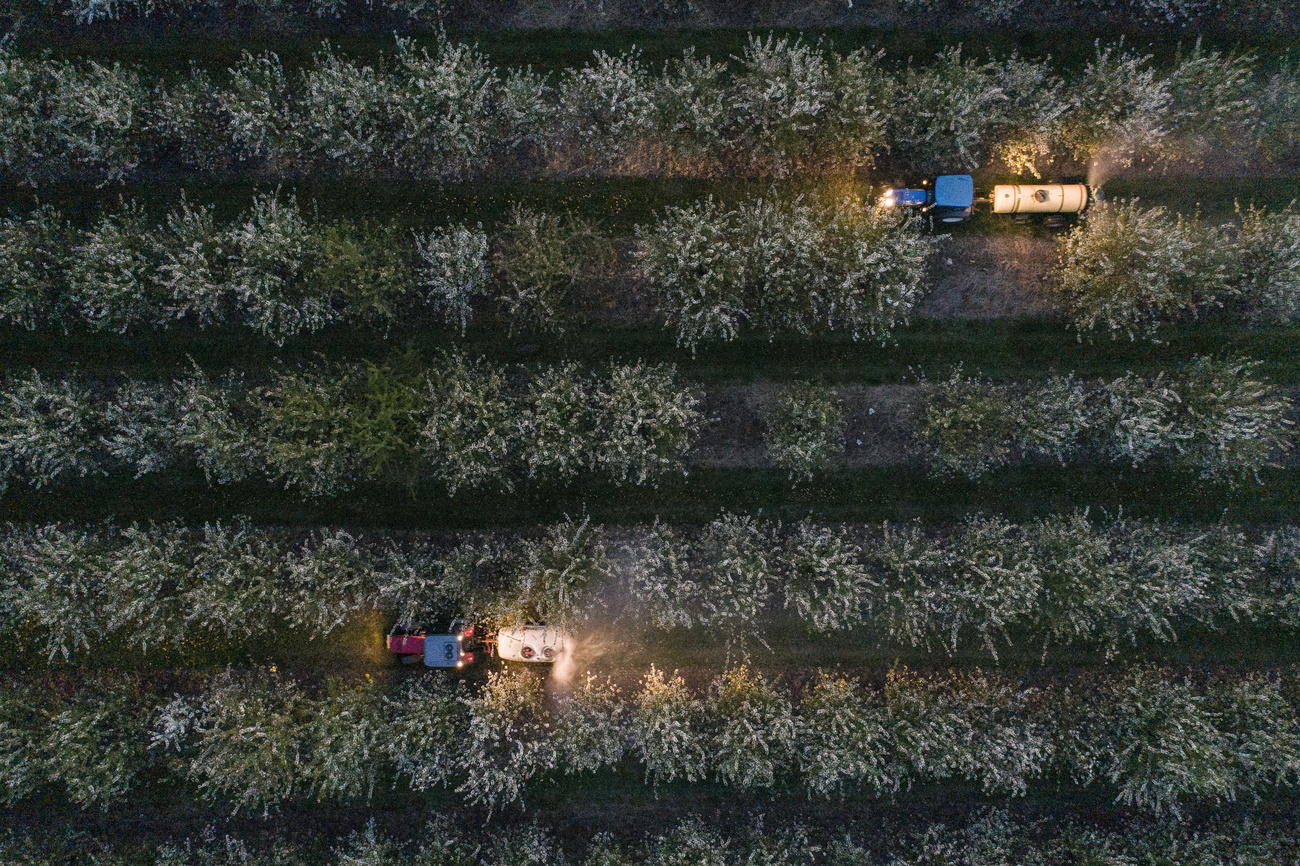
Switzerland examining possible ban on 15 pesticides

The Federal Office for Agriculture is set to open consultations on its review of 15 pesticide products that contain chlorothalonil, a fungicide in use since the 1970s to protect cereal crops from diseases.
Starting Tuesday, environmental groups will have a chance to comment on the results of the review, which include findings of high levels of the active substance in Swiss groundwater. Last June drinking water in a village in canton Fribourg had to be cut after excessive amounts of chlorothalonil were discovered.
The agricultural office, in collaboration with the Federal Office for Food Safety and Veterinary Affairs, is considering withdrawing approval for all pesticides containing this agent. A decision is expected in the autumn, the office said on Monday.
According to the World Health Organisation, chlorothalonil is especially toxic to fish and aquatic invertebrates. Exposure to the agent can cause kidney and stomach damage, including tumours, in rodents. A ban on the substance will take effect in the European Union in 2020, following conclusions from the European Food Safety Authority that the agent could pose a health risk.
The Swiss authorities say the requirements for approval of plant protection products have been tightened in recent years.
“Products that were eligible for approval 20 years ago are not necessarily the same today,” the agricultural office stated. Earlier this year, swissinfo.ch reported that the pesticide approval process in Switzerland is currently being reviewed by an external audit firm.
The government is taking measures against contaminated drinking water with its action plan to reduce pesticide pollution and the Agricultural Policy 22+, but critics say these do not go far enough. Two popular initiatives on drinking water are pending. Although the government has rejected these, voters are likely to have the final say next year.

More
Pesticide companies ‘seriously deficient’ on human rights, says UN toxics expert

In compliance with the JTI standards
More: SWI swissinfo.ch certified by the Journalism Trust Initiative


























You can find an overview of ongoing debates with our journalists here . Please join us!
If you want to start a conversation about a topic raised in this article or want to report factual errors, email us at english@swissinfo.ch.